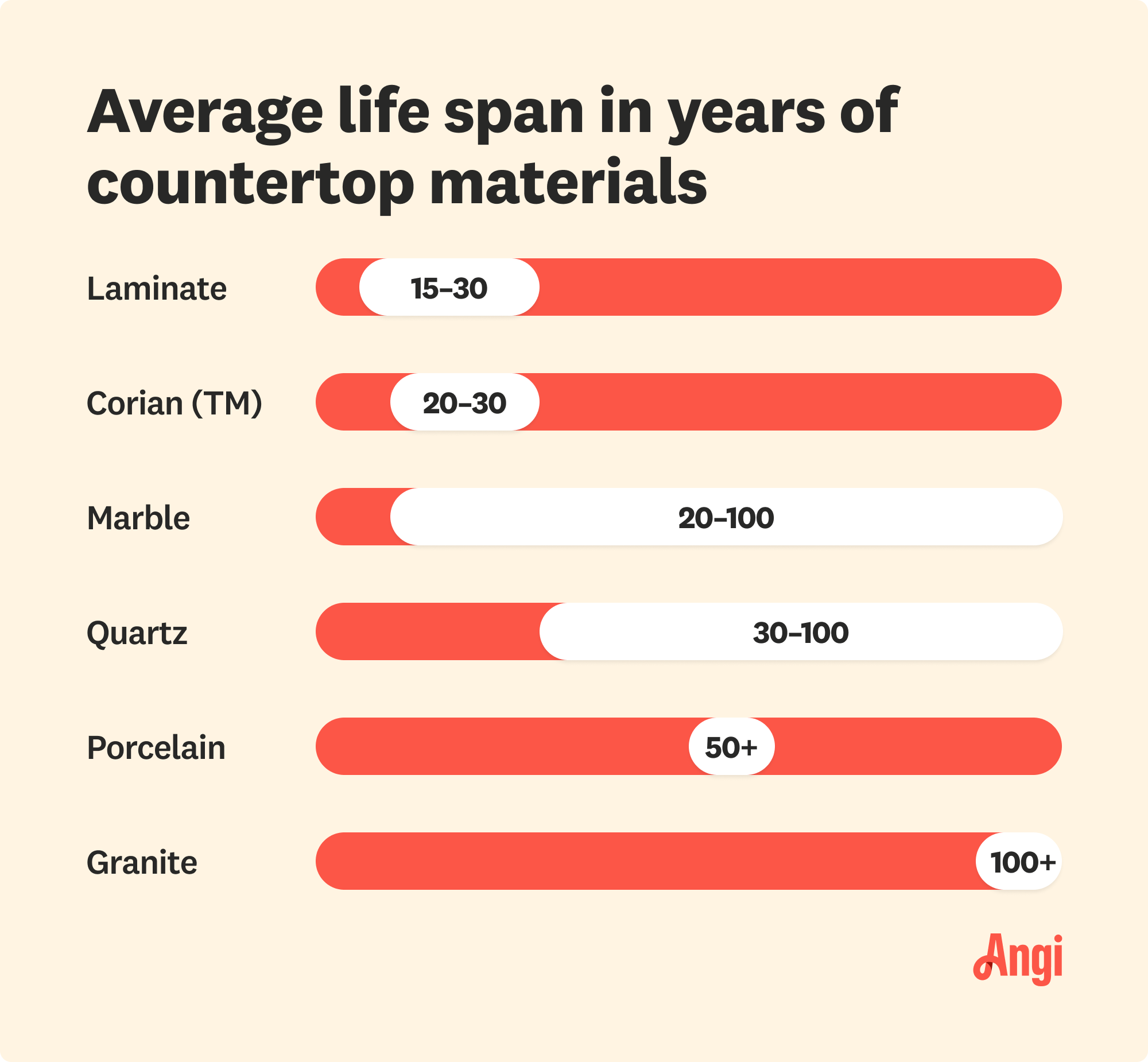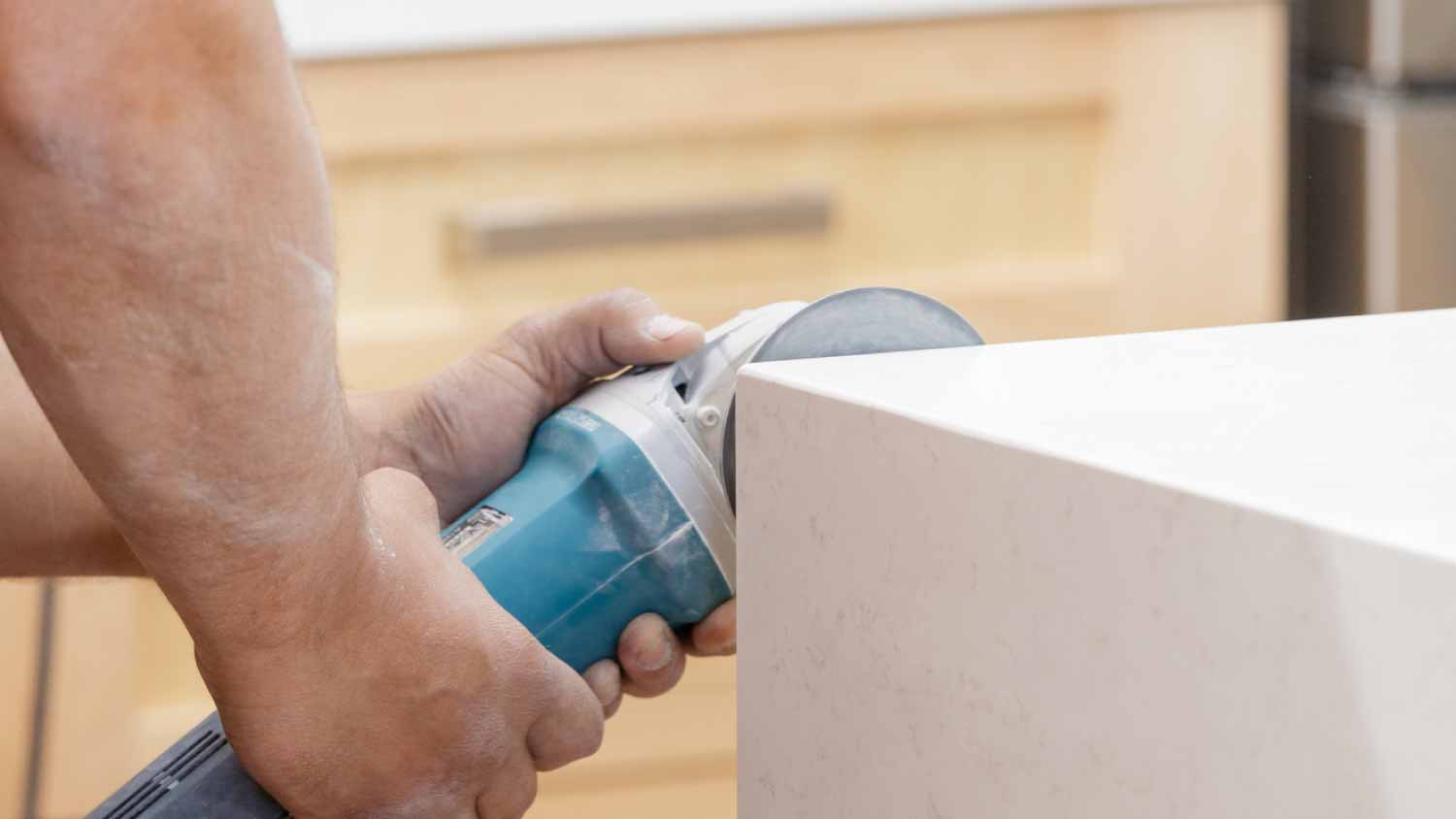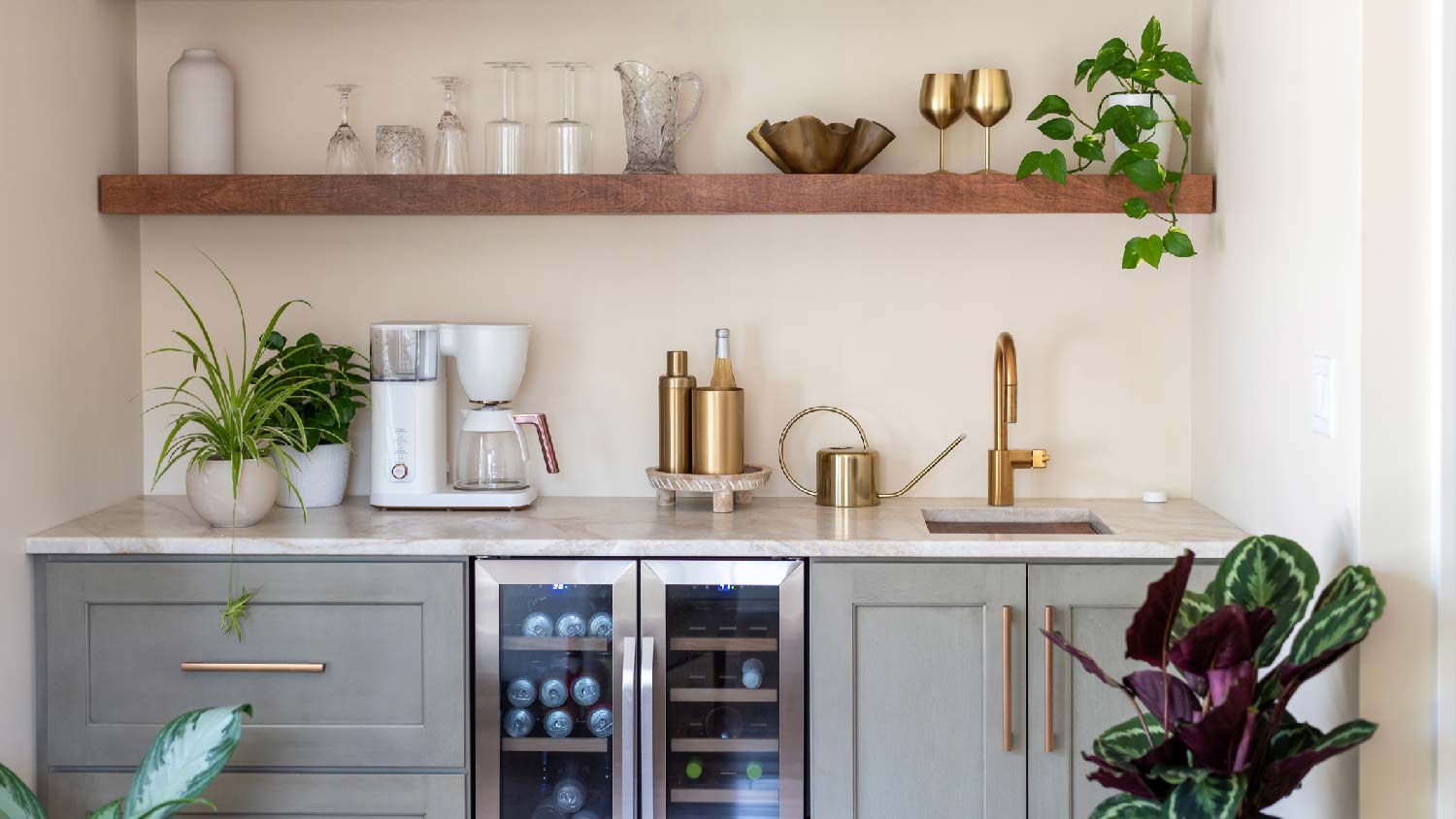How Long Do Quartz Countertops Last?
Discover the true life span of quartz countertops


Quartz countertops come in many styles and designs, making them a beautiful and durable addition to any kitchen. But how long do quartz countertops last? This guide explores the factors that affect quartz’s lifespan and the ways you can maintain your countertop to maximize its lifespan.
How Long Do Quartz Countertops Last?

Quartz is an engineered stone made from about 90% crushed stone (such as quartz, granite, or marble) and 10% resin. This results in an incredibly strong countertop material that’s naturally nonporous and more durable than solid stone countertops. For this reason, quartz countertops can last a lifetime.
Factors That Influence How Long Quartz Countertops Last

Because quartz is such a durable material, it’s likely to last for decades, no matter how you treat it. However, a few factors may affect how long your countertops will last.
Material Quality
You might be tempted to choose the cheapest quartz countertops you can find, but high-quality quartz will often last longer than low-quality quartz. Check reviews to see if customers report any issues with their quartz countertops. Look for countertops in your budget from established and well-known manufacturers like Silestone, Caesarstone, or Cambria.
Installation
Quartz is incredibly heavy, weighing between 20 and 25 pounds per foot. Although installing the countertops yourself will save money on quartz countertop installation costs, you risk damaging the material and injuring yourself. A countertop installation company has the right equipment to get the material into your home safely and to install it without damaging it. Over time, this can extend the lifespan of the countertops.
Location
The location where you install the quartz countertops can also affect how long they last. Quartz can be damaged by sunlight, so we don’t recommend installation in an outdoor kitchen. However, quartz can also become discolored if installed in a kitchen or bathroom with big windows and abundant natural light.
Care and Maintenance
Quartz is a relatively low-maintenance countertop material that is naturally nonporous and will never require sealing. However, it’s essential to take proper care of the surface if you want it to last the lifetime of your kitchen. Quartz is susceptible to heat damage, so always use hot pads or trivets under pans. Clean the countertops regularly with a mild cleaning solution, avoiding acid-based products like vinegar or lemon juice, which can cause damage. Buff out any scratches with polish to keep the surface like new.
Signs It’s Time to Replace Quartz Countertops
Although quartz countertops can last the lifetime of your kitchen, there are some signs to look out for that suggest replacement is needed or desired:
Visible damage on the surface that doesn’t go away when polished
Noticeable heat-damaged spots
Yellowing from sun exposure
Design is outdated, and you want a change
Planning to sell your home and want to maximize its selling potential
Need more countertop space and plan on a major kitchen remodel
How to Maintain Quartz Countertops
Maintaining quartz countertops is about as easy as it gets. Simply follow the tips below to keep your quartz countertops looking good.
Use a Gentle Cleaner
Clean your countertops often using a soft sponge or microfiber cloth and a gentle cleaner like dish soap. Harsh or abrasive cleaners that are highly acidic or alkaline can damage quartz countertops.
Wipe Up Spills Immediately
Although quartz is nonporous, it’s still best practice to wipe up spills right away—especially if you have a light-colored countertop and spill a dark liquid like tomato sauce, red wine, or coffee. The longer these spills sit on the countertops, the higher their chances of leaving a mark.
Prevent Heat Damage
Quartz can sustain damage from contact with hot surfaces like skillets and pans. Always use a trivet or hot pad underneath a pan before placing it on your quartz countertops.
Use a Chopping Board
Since quartz is so hard and durable, you might assume you can chop your veggies directly on the countertop. However, quartz is not invincible, and knives can cause scratches and other damage to the surface. Always use a chopping board rather than cutting directly on the quartz.
Warranties for Quartz Countertops
Depending on the manufacturer, quartz countertop warranties last 10 to 15 years. If you notice any damage, fading, stains, or other blemishes during that time frame, you can file a claim to have the repair covered by the warranty. Check the warranty’s fine print before filing a claim since some damage may not be covered.
Repairing vs. Replacing Quartz Countertops

In many cases, damaged quartz countertops can be repaired by simply buffing and polishing scratches and dings. However, replacing it may be the best choice if you have extensive heat damage, sun damage, or large gouges in the countertop. Learn more about refinishing vs. replacing countertops to determine the right course of action.
Frequently Asked Questions
Quartz and granite are both durable and long-lasting countertop materials that can last the lifetime of your kitchen. However, granite is a porous material that requires regular resealing to extend its lifespan. Conversely, quartz is more susceptible to heat damage than granite. With proper maintenance, both materials can last for decades.
White quartz countertops can yellow over time if exposed to sunlight. To prevent this, avoid installing white or light-colored quartz countertops in a kitchen with a lot of natural light, and never install quartz in an outdoor kitchen.





- Do Quartz Countertops Need to Be Sealed? Find Out the Answer
- Are Quartz Countertops Heat Resistant?
- Pros and Cons of White Quartz Countertops: Are They Right for You?
- Quartz vs. Marble Countertops: Which Is Best for You?
- Laminate vs. Quartz Countertops: Which Is Better for Your Home?
- Quartz Sinks Pros and Cons: Here’s What to Know
- What Are Solid Surface Countertops?: A Beginner’s Guide
- Quartz vs. Tile Backsplash: Which One Is Better? Costs and More
- How to Dispose of Countertops the Right Way
- 11 Unique and Unusual Kitchen Countertop Ideas










